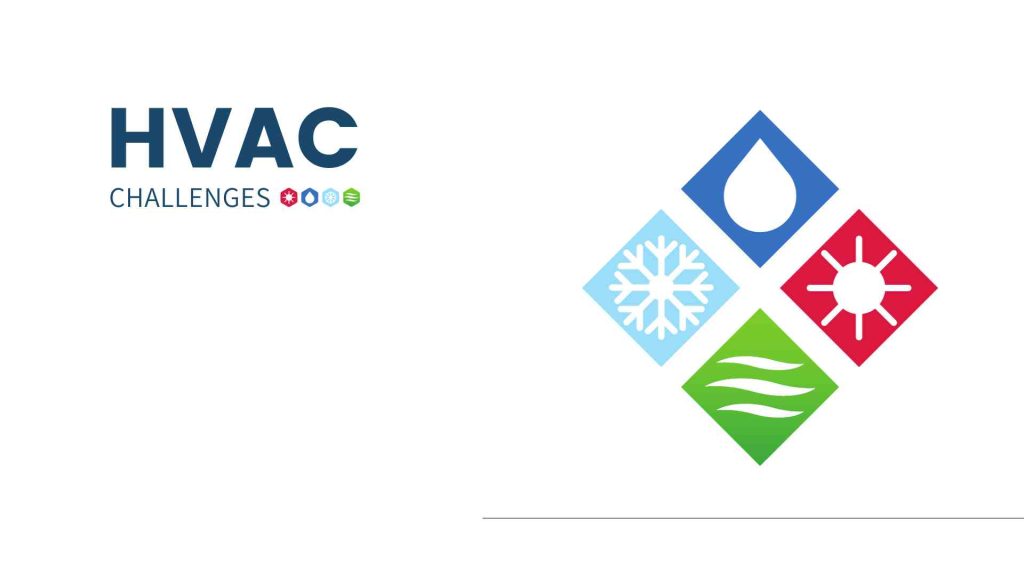The HVAC business is vital to modern life, ensuring our homes and workplaces are comfortable and safe throughout the year. While it may seem like a thriving business, HVAC contractors face their fair share of challenges in a constantly evolving landscape. We will explore the HVAC businesses, the industry’s challenges and the strategies to overcome them.
The HVAC industry encompasses many services, including repairing heating, cooling, installing, maintaining, and ventilation systems. It is pivotal in ensuring air quality, indoor convenience, and energy efficiency in residential, commercial, and industrial settings.
Challenges Faced by HVAC Businesses
Technological Advancements
One of the significant challenges HVAC businesses face is keeping up with rapid technological advancements. The industry is continually evolving with the introduction of energy-efficient HVAC systems, smart thermostats, and automation technologies. Staying updated with these innovations requires ongoing training and investment in new equipment, which can strain the resources of smaller HVAC companies.
Regulatory Compliance:
HVAC businesses are subject to many regulations, including environmental standards, safety codes, and energy efficiency requirements. Keeping up with these regulations and ensuring compliance can be difficult and expensive, mainly for smaller companies without dedicated compliance teams.
Seasonal Variations:
Seasonal fluctuations in demand are a common challenge for HVAC businesses. The need for heating and cooling services can vary significantly throughout the year, resulting in uneven cash flow. Managing labor costs and inventory to meet these fluctuations while maintaining profitability can be a juggling act.
Skilled Labor Shortages:
Finding and retaining skilled HVAC technicians is challenging. The aging workforce in the industry and the increasing complexity of HVAC systems make it difficult for businesses to recruit and train qualified technicians. Talent competition can be fierce, driving up labor costs.
Pricing Pressures:
Price competition in the HVAC industry can be intense. Many customers prioritize cost over quality when choosing HVAC services, which can lead to price wars among businesses. Maintaining profitability while offering competitive pricing can be a delicate balancing act.
Marketing and Customer Acquisition:
Effectively marketing HVAC services and acquiring new customers can be challenging. With the rise of online feedback reviews and social media, a single negative review can significantly impact a business’s reputation. Establishing a strong online presence, managing reviews, and implementing marketing strategies can be resource-intensive.
Economic Downturns:
Economic downturns can severely impact the HVAC industry. Consumers and businesses often reduce non-essential expenses, including HVAC upgrades and maintenance during recessions. HVAC businesses need to have contingency plans in place to weather economic uncertainties.
Strategies to Overcome Challenges
Ongoing Training: Investing in continuous training and development for technicians is essential to keep up with technological advancements and maintain a high level of expertise. Many manufacturers offer training programs, and HVAC companies should take advantage of these opportunities.
Compliance Management: Partnering with experts or consultants who specialize in regulatory compliance can help HVAC businesses navigate the complex landscape of industry regulations. Staying informed about changes in regulations is also crucial.
Diversification: To address seasonal variations in demand, HVAC businesses can diversify their service offerings. This might include expanding into related areas such as plumbing or electrical services to provide year-round work for technicians.
Employee Retention: To attract and retain skilled technicians, HVAC businesses should offer competitive wages, benefits, and opportunities for career advancement. Creating a favorable work environment and delivering ongoing training can also improve employee retention.
Value-Based Pricing: HVAC businesses should focus on value-based pricing instead of engaging in price wars. Emphasize the quality of service, energy savings, and long-term benefits of HVAC solutions to justify higher prices.
Marketing and Online Reputation Management: Invest in professional marketing assistance to build a powerful online presence and handle online reviews. Boost happy customers to leave positive reviews and respond promptly to negative feedback to show a commitment to customer satisfaction.
Financial Planning: Develop a robust financial plan with contingency measures for economic downturns. Building cash reserves and diversifying revenue streams can provide a buffer during tough times.
The HVAC business is not without its challenges, but with careful planning, adaptability, and a commitment to excellence, HVAC companies can overcome these obstacles and thrive in a competitive market. Staying updated with technology, complying with regulations, managing seasonal variations, and nurturing a skilled workforce are key strategies to ensure long-term success in the HVAC industry.
How Can Acumatica Help?
Acumatica, a robust cloud-based ERP solution, offers HVAC businesses a powerful tool to fuel growth and success. With its comprehensive suite of features, Acumatica streamlines operations enhances efficiency, and enables better decision-making. Real-time data analytics empowers HVAC companies to optimize resource allocation, manage inventory effectively, and adapt to seasonal variations in demand.
Acumatica’s scalability accommodates business expansion, ensuring that HVAC companies can seamlessly integrate new branches or service lines while maintaining centralized control and visibility as they grow. With Acumatica, HVAC businesses can confidently navigate the challenges of their industry and chart a path to sustainable growth. Contact us for a customized ERP.

Vijay comes with a vast experience in ERP and enterprise solutions space with about 20 years of experience in various packaged application like Acumatica, SAP, Orion, Salesforce.com, SugarCRM and, SalesLogix.

